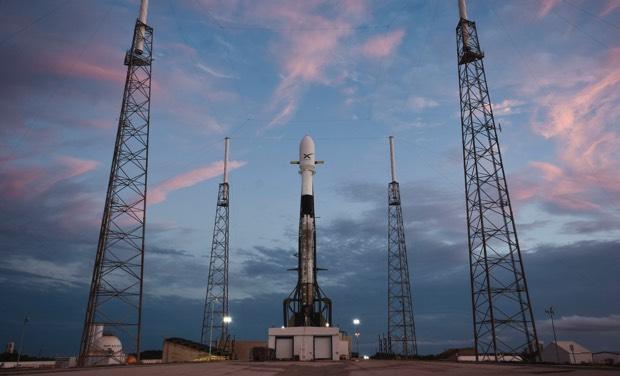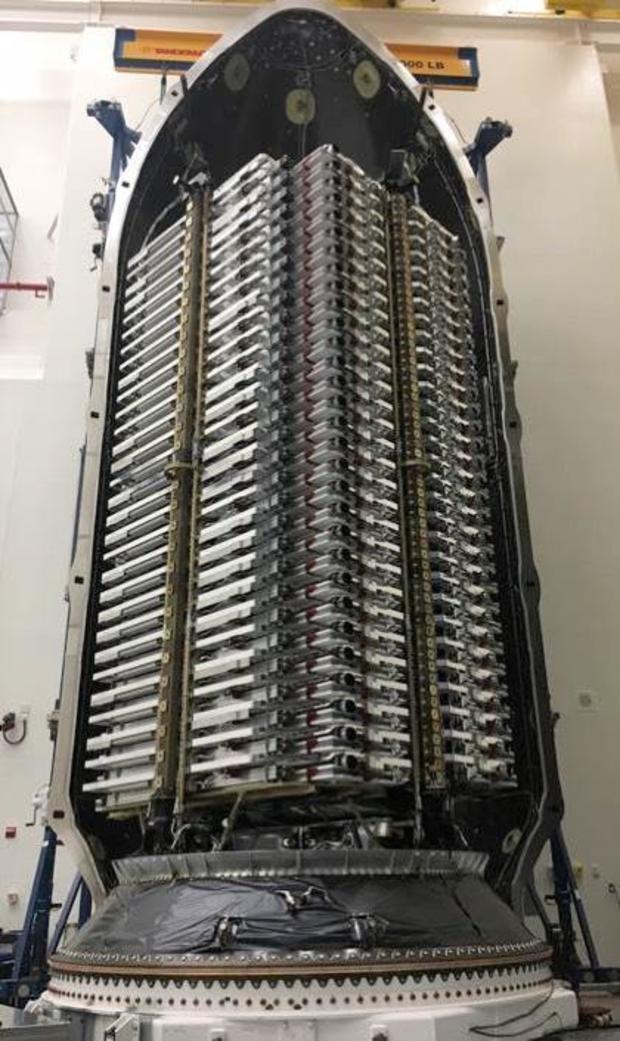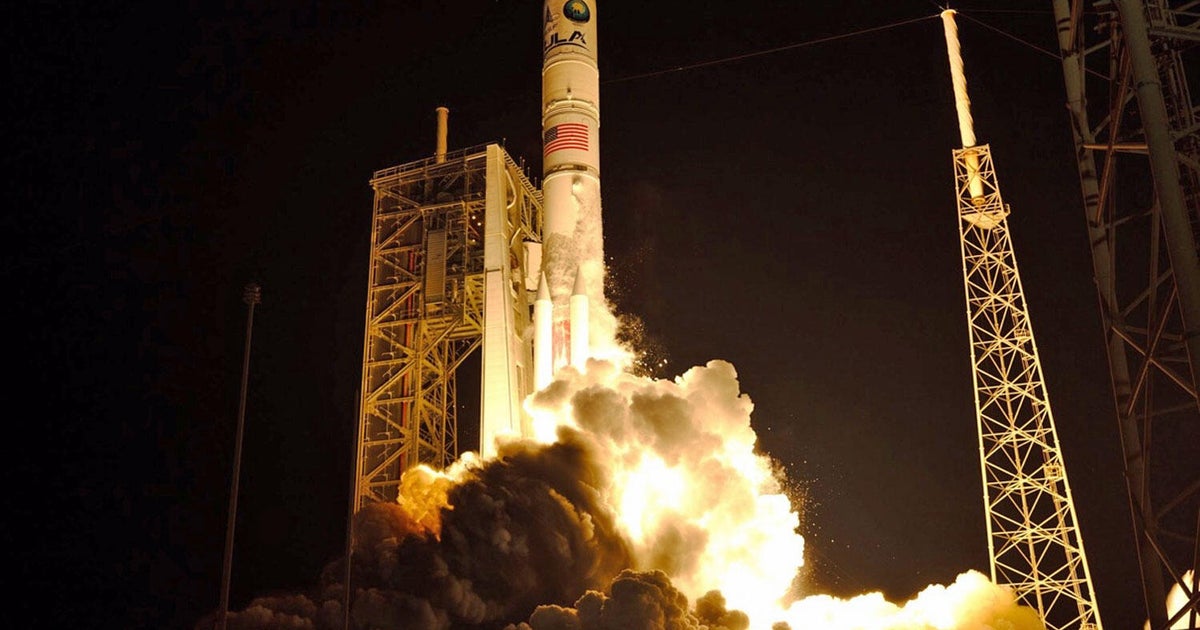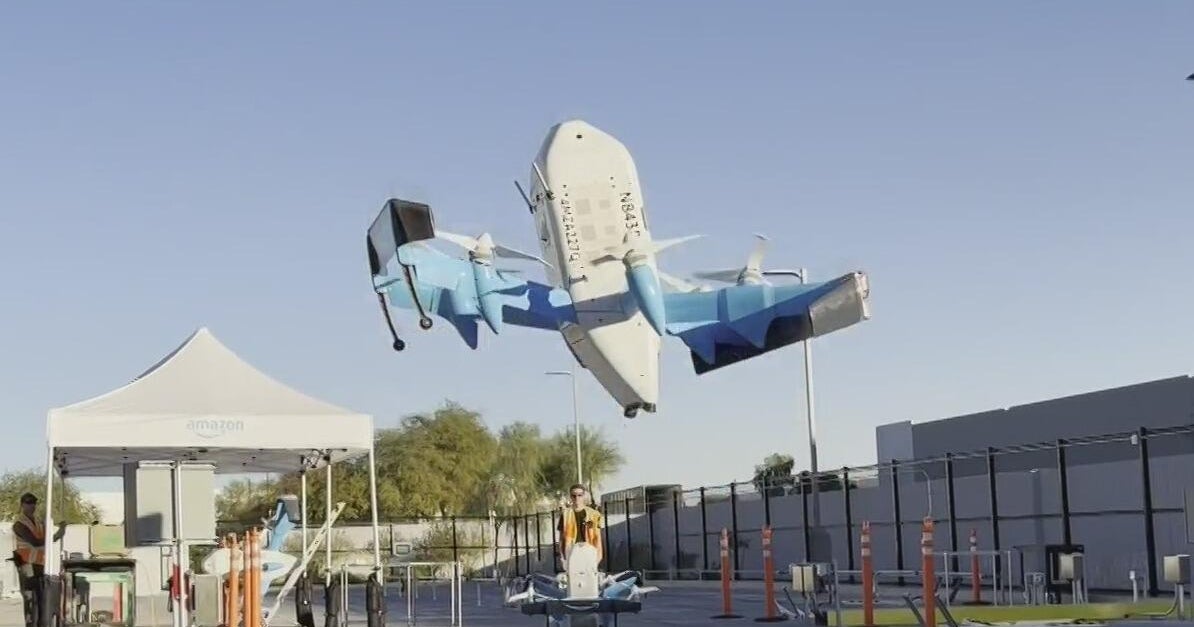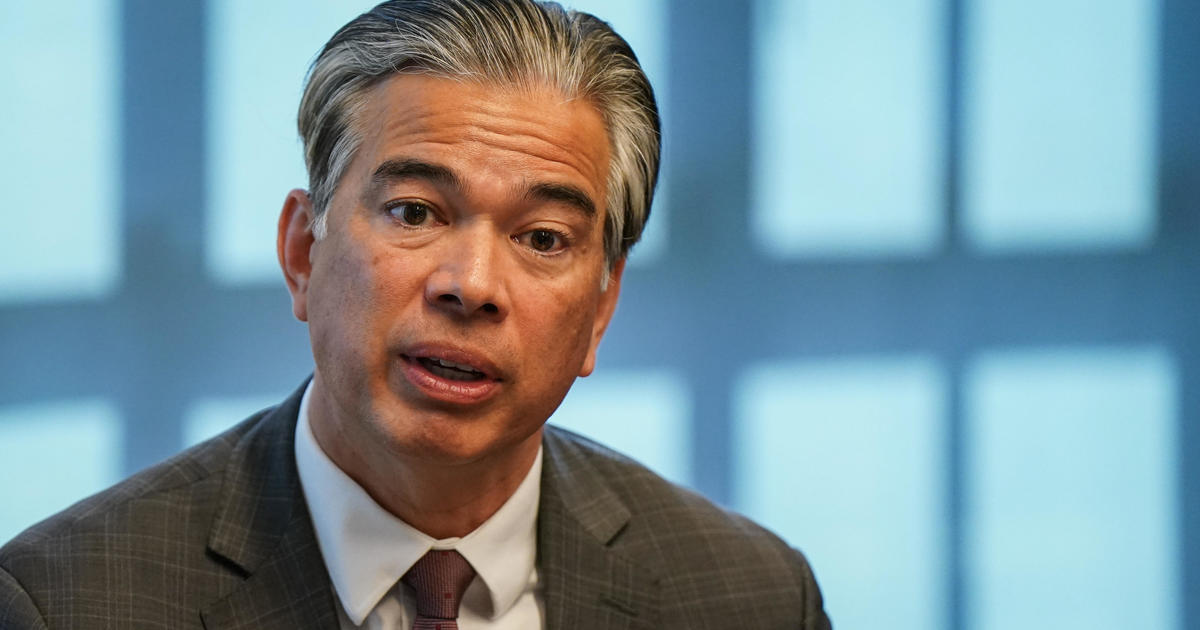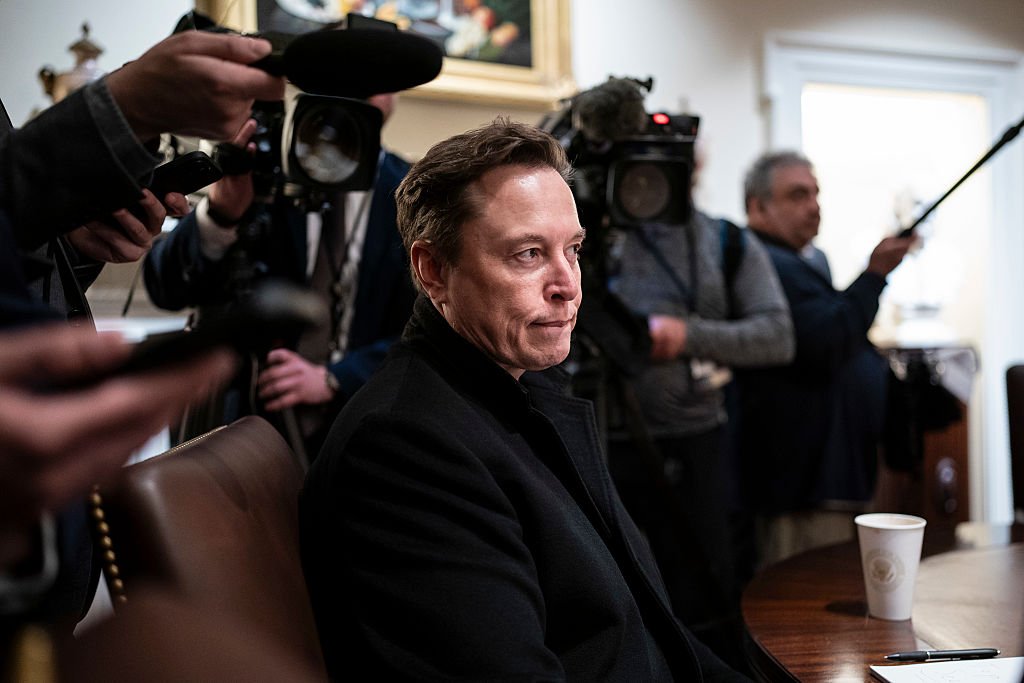High winds scrub SpaceX launch of 60 Starlink internet relay satellites
High upper level winds forced SpaceX to delay launch of a previously-flown Falcon 9 rocket Wednesday evening on a long-awaited mission to deploy 60 Starlink internet relay satellites to help pave the way toward an eventual constellation of thousands designed to provide space-based high-speed internet connectivity around the world.
With the satellites packed into the Falcon 9's 17-foot-wide nose fairing, the slender rocket was scheduled for liftoff from pad 40 at the Cape Canaveral Air Force Station at 10:30 p.m. ET, but the flight was held up a half hour and then scrubbed for the day when balloon data showed the upper level winds were too strong.
While disappointing, SpaceX was taking no chances with launch of its heaviest payload to date, the first batch of satellites in a project company officials are counting on to generate revenue down the road.
"This is one of the hardest engineering projects I've ever seen done, and it's been executed really well," SpaceX founder and chief executive Elon Musk told reporters in an evening conference call.
But, he warned, "there is a lot of new technology here, and it's possible that some of these satellites may not work and, in fact, a small possibility that all the satellites will not work. We don't want to count anything until it's hatched, but these are, I think, a great design, and we've done everything we can to maximize the probability of success."
Another six launches of 60 or so Starlink satellites each will be needed to provide a "useful" network and another six launches after that to provide minimal global coverage. Musk said SpaceX will continue to expand the network after that to provide more complete coverage and to keep up with bandwidth demand.
All told, SpaceX sought regulatory approval to launch nearly 12,000 satellites in a project that reportedly will cost in the neighborhood of $10 billion.
"One does not need anywhere near 10,000 satellites to be effective," Musk said. "We'll start selling service initially around the 400th satellite launch and then make sure our production and launch of satellites stays ahead of user demand."
SpaceX plans to fill the network with up to 4,000 or more satellites using Ku- and Ka-band radios with thousands more using so-called V-band frequencies. The satellites will be deployed at three orbital altitudes — 210, 342 and 745 miles — in multiple planes to provide global high-throughput coverage.
To improve the flow of data through the system, the 500-pound satellites will be able to hand off internet connections to other Starlink spacecraft as needed without going through ground stations. The initial 60 satellites, however, do not feature such "cross-link" capability and will rely on "gateway" ground stations instead.
But fully operational follow-ons will provide "high-bandwidth, low-latency connectivity, ideally throughout the world," Musk said. "This would provide connectivity to people that don't have any connectivity today or where it's extremely expensive and unreliable."
The Starlink system also will serve "people who may have connectivity today in developed areas of the world but it's very expensive," he added. "This will provide a competitive option for them."
SpaceX has designed low-cost terminals with flat, pizza box-size antennas that will allow customers to tap into the internet from virtually anywhere in the world. Because the Starlink antennas do not require precise aiming — they simply have to face the sky — they can be used in cars, planes, boats or virtually any other location as long as power is available.
SpaceX launched two Starlink demonstration satellites as secondary payloads on a Falcon 9 in 2018.
"This next batch of satellites will really be a demonstration set for us to see the deployment scheme and start pulling our network together," Gwynne Shotwell, SpaceX president and chief operating officer, said earlier this month. "We start launching satellites for actual services later this year."
She added that two to six more Starlink flights may be launched by the end of the year, "but it largely depends on how we do on this first batch."
SpaceX is one of several companies, including Amazon, OneWeb and others, that are planning space-based internet services using vast constellations of satellites. The sheer number of satellites potentially bound for low-Earth orbit has raised questions about traffic management, collision avoidance how they will be removed from orbit at the end of their planned lifetimes.
Musk said the Starlink satellites are equipped with sophisticated Hall-effect ion thrusters, allowing them to maneuver as required to avoid possible collisions with space debris or other spacecraft and to push them back into the atmosphere at end of their missions.
In addition, "95 percent of all components of this design will quickly burn in Earth's atmosphere at the end of each satellite's lifecycle — exceeding all current safety standards — with future iterative designs moving to complete disintegration," SpaceX said in its mission press kit.
"There's a lot of fundamental goodness about Starlink," Musk said. "We just want to make sure the appropriate caveats are there. There's a lot of technology, this is very hard, and quite frankly in the past, the success of low-Earth orbit communications constellations, I believe none have successfully gone into operation without going bankrupt.
"This is a very difficult thing. I do believe we'll be successful, but it is far from a sure thing. Support and wishes for good luck are highly appreciated."
